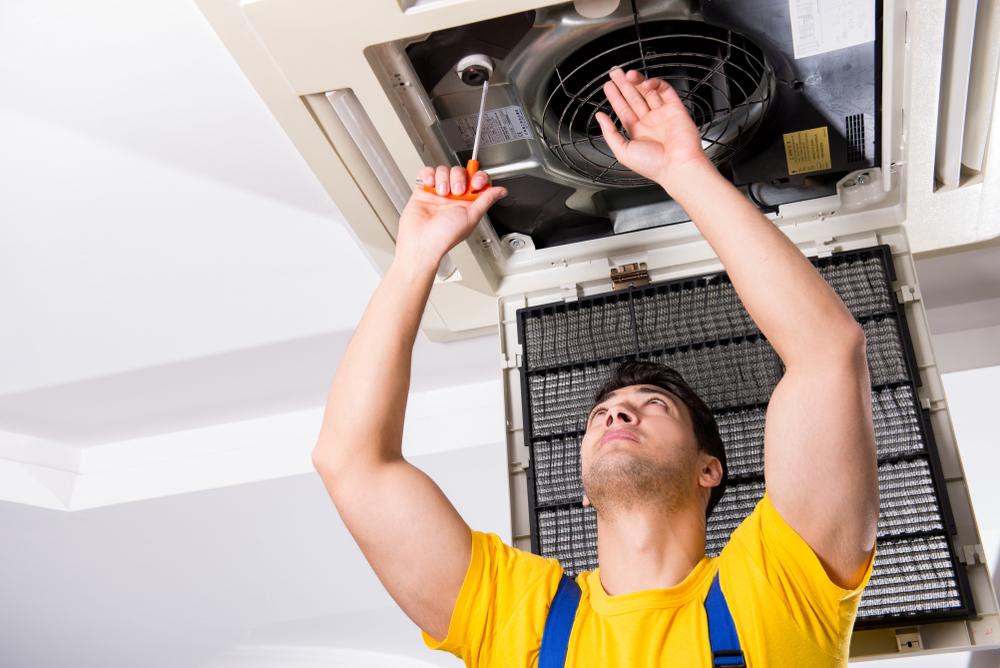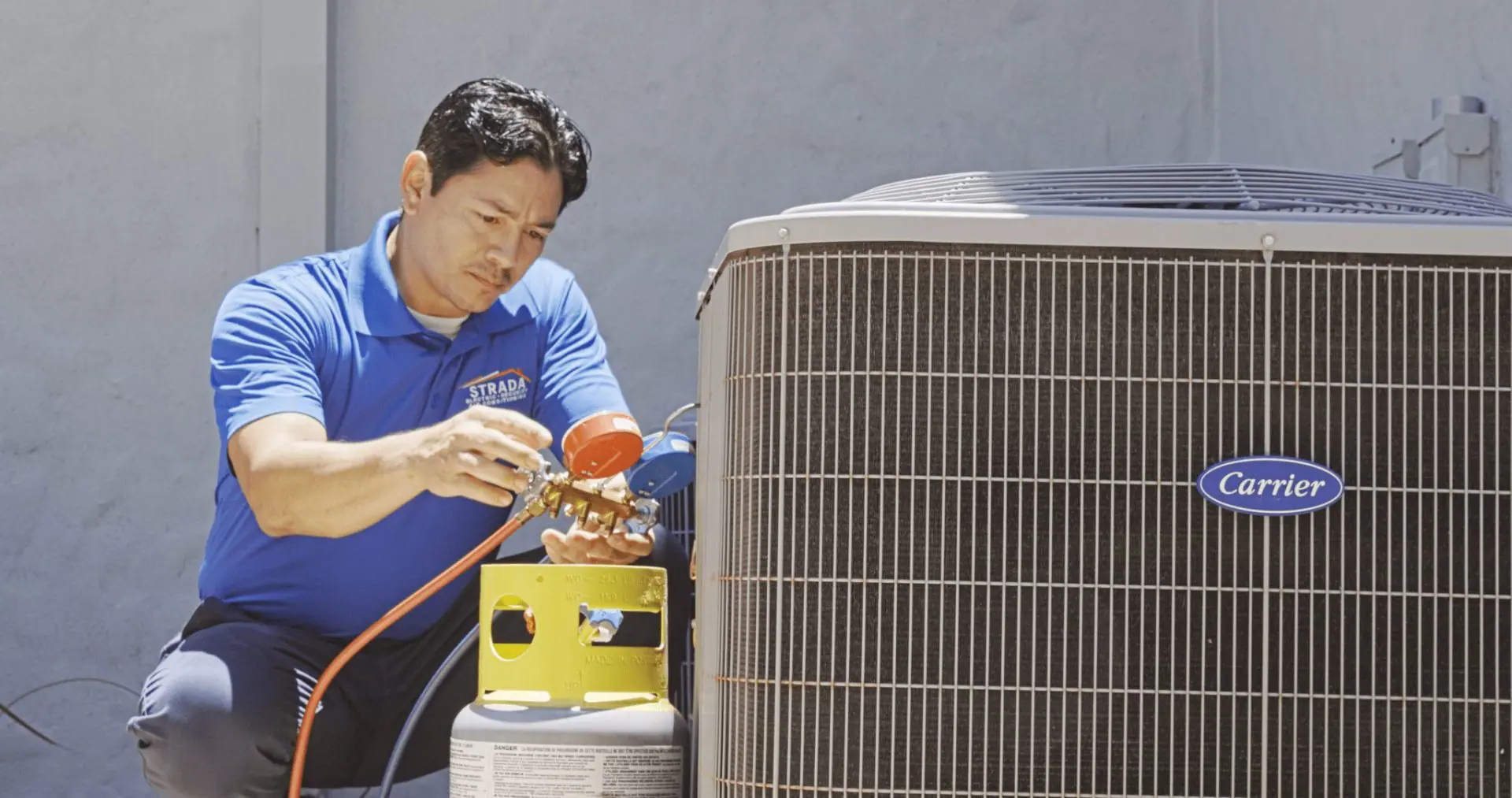Selecting Between a Warmth Pump and Heater: Key Considerations for Your Cooling And Heating Needs
When evaluating heating options for cooling and heating needs, the decision between a heat pump and a furnace can be complicated. Each system uses distinct advantages customized to specific environments and energy performance goals. Comprehending these differences is vital for making an informed selection. Key variables such as installment costs and ecological influence even more make complex the option procedure. Which alternative really aligns with one's convenience and sustainability choices? The adhering to sections will check out these factors to consider in information.
Comprehending Heat Pumps: Just How They Work and Their Benefits
While many home owners take into consideration different heating options, understanding how heatpump function and their advantages can significantly influence their decision. Heat pumps run by transferring heat as opposed to producing it. In the winter season, they draw out warm from the outside air or ground and move it inside your home, while in the summertime, they reverse this procedure, cooling down the home by expelling heat outside. This dual functionality makes them versatile for year-round environment control.One of the key advantages of warmth pumps is their power effectiveness. They utilize considerably less electrical power compared to traditional furnace, potentially resulting in reduced utility bills (furnace replacement). Additionally, heat pumps have a smaller carbon impact, making them an eco pleasant selection. They additionally call for much less maintenance than traditional systems, adding to long-lasting cost financial savings. Overall, understanding the auto mechanics and benefits of heat pumps can aid homeowners make notified decisions concerning their heating and cooling demands
Exploring Heating Systems: Types, Operation, and Benefits
Heaters are available in various kinds, including gas, electric, and oil models, each with unique functional systems. Comprehending these distinctions is vital, as they influence performance and home heating performance. In addition, furnaces use various advantages, such as regular warm output and reliability in chillier climates.
Kinds of Heating systems
Heating unit can vary considerably in design and procedure, with heaters being a prominent option among property owners. There are a number of kinds of furnaces, each utilizing different gas resources and innovations. Gas heating systems prevail, leveraging gas to generate warm successfully. Electric heating systems, on the various other hand, use electric resistance to create warmth, typically favored for their simple setup. Oil heaters, while less usual, work in areas with minimal gas accessibility (ductless mini splits). Furthermore, condensing furnaces make the most of power efficiency by reusing and catching exhaust gases. Each type runs through a system of heat exchangers and ductwork to disperse warm air throughout a home. Comprehending the differences between these furnace kinds is crucial for notified heating and cooling decisions
Benefits of Heaters
For home owners seeking trustworthy heat during cool months, the benefits of heating systems are substantial. Furnaces give regular home heating, ensuring even temperatures throughout the home. They are particularly efficient in extreme cool, commonly outmatching heat pumps in cold problems. Numerous types, consisting of gas, electrical, and oil furnaces, use versatility to fulfill varied requirements and preferences.Furnaces likewise often tend to have lower initial installation costs compared to heatpump, making them a much more easily accessible choice for many. Their robust style contributes to a much longer lifespan, with numerous devices lasting over 15 years with correct upkeep. Additionally, modern-day heaters are commonly outfitted with innovative innovation for improved effectiveness, which can bring about reduced power bills. Overall, heaters remain a dependable selection for effective home heating.

Power Effectiveness: Comparing Warmth Pumps and Furnaces
When comparing power efficiency in between heatpump and heaters, the Seasonal Energy Efficiency Ratio (SEER) plays a crucial duty in determining performance. Furthermore, a functional expense evaluation discloses the lasting monetary implications of each system. Comprehending these factors can guide home owners in making informed choices about their heating options.
Seasonal Power Performance Ratio
Energy effectiveness plays a vital role in the decision-making procedure between warm pumps and furnaces, particularly when thinking about the Seasonal Power Performance Proportion (SEER) This statistics measures the cooling effectiveness of heatpump over a whole cooling season, supplying a standardized means to examine efficiency. Higher SEER scores suggest higher power effectiveness, converting to lower power consumption and decreased utility expenses. On the other hand, heaters are usually evaluated making use of the Yearly Gas Use Efficiency (AFUE) score, which mirrors heating efficiency. When contrasting these 2 systems, property owners ought to focus on SEER scores for heatpump, as they directly influence overall power cost savings and environmental sustainability. An extensive understanding of SEER can notably affect the long-term fulfillment and cost-effectiveness of the picked HVAC solution.
Functional Price Evaluation
Recognizing the functional expenses connected with warmth pumps and heating systems is vital for property owners evaluating their options. Warm pumps normally use higher power efficiency, converting electric energy into warm with very little waste. This causes lower month-to-month energy bills, particularly in modest climates. Conversely, traditional heaters, particularly gas versions, might have lower ahead of time costs yet can incur greater functional expenses over time because of sustain costs and performance ratings.Moreover, heat pumps can work as click here for info both home heating and cooling systems, potentially minimizing the requirement for different HVAC units. While preliminary financial investments for heat pumps may be higher, see post their lasting savings in power performance can make them a more cost-efficient selection for several households. Mindful analysis of local power rates is vital to establish the most effective choice.
Setup Expenses: What to Expect for each and every Heating Unit
Installment prices for heating unit can differ considerably between heatpump and heating systems, affecting homeowners' choices. Heatpump usually have higher ahead of time setup costs, typically ranging from $3,500 to $8,000, depending upon the unit size and intricacy of setup. This consists of the outside system, indoor handling system, and necessary ductwork modifications. On the other hand, furnaces have a tendency to have reduced first prices, balancing between $2,500 and $6,000, which can be appealing for budget-conscious house owners. However, setup expenditures can increase if substantial ductwork is required.Moreover, the choice of gas type for heaters-- gas, gas, or electric-- can likewise impact setup expenses. While warm pumps provide energy efficiency, their preliminary financial investment may hinder some customers. Eventually, reviewing setup prices together with lasting savings and performance will assist house owners in making informed decisions about their heating unit.
Climate Factors To Consider: Which System Does Much Better in Your Area
How do environment problems influence the performance of heating unit? The performance of warmth pumps and heaters can differ greatly depending upon the local environment. In modest climates, heat pumps stand out by efficiently transferring warmth from the outdoors air, making them an energy-saving choice. Nonetheless, their efficiency diminishes in incredibly chilly temperature levels, where they may battle to extract enough warm. Conversely, furnaces, redirected here particularly gas designs, provide reliable and regular heat no matter of outdoor conditions, making them better in chillier regions.In locations that experience milder winters months, heatpump can run successfully year-round, providing both heating & cooling. On the other hand, areas with extreme winters months usually gain from the robustness of furnaces. Ultimately, comprehending the regional environment is vital when determining in between a warm pump and a heating system, as it straight impacts their functional performance and overall efficiency.
Maintenance Requirements: Long-Term Treatment for Heat Pumps vs. Furnaces
While both heatpump and furnaces require normal upkeep to assure peak performance, their particular needs and care regimens differ significantly. Heating systems normally require less constant interest, with annual evaluations sufficing to inspect for gas leaks, tidy filters, and analyze total performance. Their simpler layout often permits for straightforward repairs.In comparison, heatpump necessitate biannual maintenance because of their dual duty in heating and cooling. This includes cleansing coils, inspecting cooling agent levels, and making certain that both the outdoor and indoor units function at their best. In addition, heatpump maintenance usually includes more elaborate elements, making professional maintenance essential.Neglecting maintenance can cause lessened efficiency and increased energy costs for both systems. Ultimately, home owners need to think about these lasting treatment demands when choosing between a heatpump and a heater, as proactive upkeep can prolong the life expectancy and efficiency of either system significantly.
Ecological Impact: Selecting a Lasting Home Heating Alternative
The environmental effect of home heating systems is a critical assessment for home owners seeking sustainable options. Heatpump are normally extra energy-efficient than typical heating systems, as they transfer warm as opposed to produce it, significantly reducing carbon discharges. By using sustainable energy resources, such as geothermal or air-source heat pumps, property owners can additionally reduce their environmental footprint.On the various other hand, gas heaters produce greenhouse gases and add to air pollution, though they frequently give higher warmth result. Innovations in modern technology have led to the growth of high-efficiency furnaces that lessen emissions.Ultimately, picking a home heating system includes evaluating effectiveness against environmental impact. Property owners are urged to assess regional power sources and incentives for sustainable systems, guaranteeing an option that aligns with both individual comfort and ecological obligation. The decision impacts not just prompt convenience but additionally long-lasting sustainability and ecological health and wellness.
Frequently Asked Inquiries
How Much Time Do Warm Pumps and Furnaces Typically Last?
The life expectancy of heatpump commonly varies from 15 to two decades, while heaters can last between 15 to thirty years. Routine upkeep substantially affects their durability and efficiency in supplying heating services.
Can I Use a Heatpump in Extremely Cold Climates?
Warmth pumps can run in incredibly cold climates, but their effectiveness diminishes as temperatures drop. In such conditions, supplementary home heating sources may be required to maintain comfy interior temperature levels and guarantee peak performance.

What Is the Noise Level of Heat Pumps Versus Furnaces?
The sound levels of heat pumps and heating systems differ substantially. Usually, heatpump run more quietly than conventional furnaces, making them preferable for those conscious sound, while heating systems may create louder operational noises throughout home heating cycles.
Are Warmth Pumps Suitable for Both Cooling And Heating?
Heat pumps are certainly appropriate for both cooling and heating (heat pump service). They work by transferring warmth, giving efficient temperature level control year-round, making them a functional choice for homeowners seeking an all-in-one HVAC service
What Dimension Home Heating System Do I Required for My Home?
Figuring out the suitable size heater for a home needs assessing factors such as square video footage, insulation top quality, local climate, and the home's format. Consulting a professional can ensure an accurate assessment and perfect comfort. Heat pumps normally supply greater energy efficiency, converting electric power right into heat with marginal waste. In moderate environments, warm pumps excel by successfully moving warmth from the outside air, making them an energy-saving option. Alternatively, heaters, especially gas versions, offer regular and trustworthy heat no matter of outside problems, making them preferable in cooler regions.In locations that experience milder winter seasons, heat pumps can run effectively year-round, providing both home heating and air conditioning. Warmth pumps are normally extra energy-efficient than standard heaters, as they move warmth rather than generate it, greatly decreasing carbon emissions. By making use of renewable power resources, such as geothermal or air-source warm pumps, property owners can further minimize their environmental footprint.On the various other hand, natural gas heating systems emit greenhouse gases and add to air contamination, though they often supply higher warm outcome.